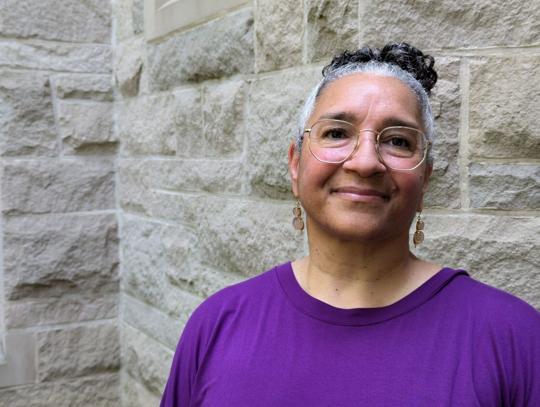get these nets
Veteran
Californian native turned Xavier professor dives into her Creole roots in new book

Sunset Limited: An Autobiography of Creole by Wendy A. Gaudin.
Louisiana is a rich state of mixed-race people. Wendy A. Gaudin, a California native and descendant of Louisiana Creoles, approaches the complex tapestry of what it means to be Afro-Creole in Louisiana and California in her creative nonfiction book, "Sunset Limited: An Autobiography of Creole."
Gaudin uses the train route, the Sunset Limited — a train that many Creole families took from New Orleans to Los Angeles — as a vessel for investigating her own family's lineage and experiences while examining the cultural and social elements of being Creole inside and outside of Louisiana.
Gaudin forms a personal, nuanced history that includes elements of poetry and imagery.
Gaudin is a historian, essayist, poet and history professor at Xavier University in New Orleans, where she teaches courses in the disciplines of history and African American and diaspora studies. Her research interests are primarily in Creole history and the histories of racially mixed people in different French colonial contexts, namely south Louisiana and south Vietnam.

How did you approach your unique style of including poetry and imagery among the history?
My Ph.D., master's and bachelor's degrees are all in history, and I did learn how to write the standard, traditional, third-person singular style that is supposed to be from an objective point of view. But I also studied oral history, and one of the elements is the relationship of the recorder of the story to the person telling their story. You cannot act as if you are two machines telling stories.
We look at each other. We hear each other's accents. We share some of our history with each other. When you're an oral historian, you give some of yourself to the subject that you're interviewing, and it's not flat. It's multi-dimensional. It's very rich.
I was speaking to these Creoles who are my grandparents' generation, and I am a younger generation. They may be judging me based on how I look, how I speak as a Californian, and that perception of me may shape what they tell me and how they tell me. I would also say that I've always been a creative writer.
My strength is interdisciplinary. I write creative nonfiction. I write autoethnography. I write poetry. I weave them all together. I wrote from my strength, rather than the dictates of my discipline.
"Sunset Limited" is accessible in a way that people can connect to it and not feel like they're reading above their understanding. Though, at the same time, it's educational. How did you accomplish that?
I really wanted it to speak to multiple audiences — to people who are interested in life, life stories, life writing. I did not want it to only speak to academics.
I also want to say Creoles are more than one thing, and so I wanted the book to reflect the multidimensionality of Creoles.
(continued)
